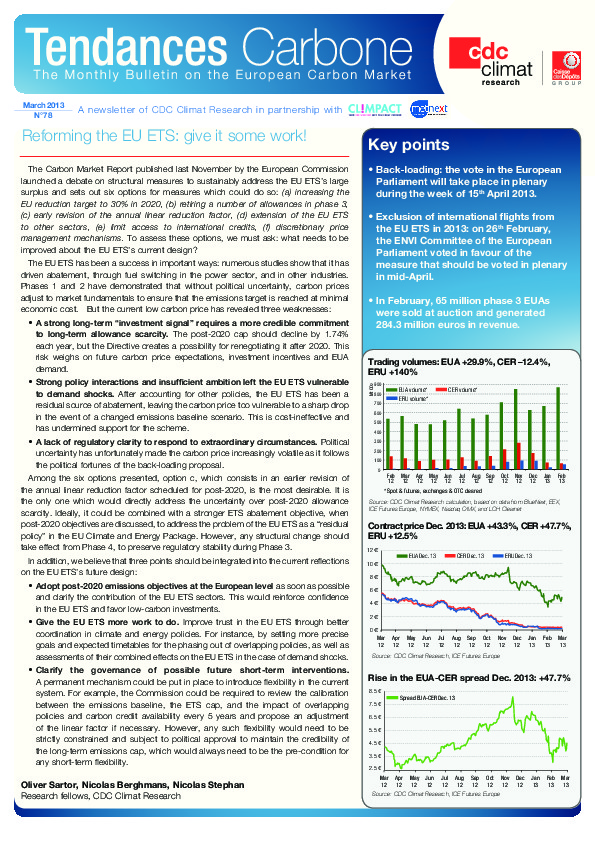Reforming the EU ETS: give it some work!
The Carbon Market Report published last November by the European Commission launched a debate on structural measures to sustainably address the EU ETS’s large surplus and sets out six options for measures which could do so: (a) increasing the EU reduction target to 30% in 2020, (b) retiring a number of allowances in phase 3, (c) early revision of the annual linear reduction factor, (d) extension of the EU ETS to other sectors, (e) limit access to international credits, (f) discretionary price management mechanisms. To assess these options, we must ask: what needs to be improved about the EU ETS’s current design?
